OmegaMax Omega 3 For Dogs & Cats | Fish Oil Softgels 120 x 1000mg
OmegaMax Omega-3 Purified Fish Oil for dogs and cats of all ages and breeds 120 x 1000mg Softgel Capsules
R349,00
Buy More. Pay Less!
| BUY (quantity) | PAY (each) | YOU SAVE (%) |
|---|---|---|
| 1 | R349,00 | - |
| 2 | R331,55 | 5% |
| 3 | R314,10 | 10% |
| 4+ | R279,20 | 20% |
shopping on nutriflex is safe and secure
can dispatch immediately
in stock
FAST & FREE Delivery Over R650*
Pickup available: NutriFlex® Factory Shop — Cape Town.
High-potency omega-3 1000mg softgel capsules are a great way to support your pet’s joint mobility, help maintain skin health, manage itchy skin and contribute to a luxurious coat shine.
OmegaMax omega-3 concentrated EPA and DHA natural fish oil supplement delivers a rich source of polyunsaturated omega-3 fatty acids.
Because pets cannot produce these essential fatty acids, they must get them from their diet.
NutriFlex OmegaMax isn’t your typical omega-3 fish oil for pets; instead, it’s crafted with sustainably harvested wild-caught anchovies and sardines, molecularly distilled to remove toxins and impurities.
OmegaMax is vet recommended for dogs and cats of all breeds and ages. Each capsule contains an exceptionally pure and fresh source of fish oil with a minimum of 180mg EPA and 120mg DHA, delivering an important omega-3 boost to help your pet enjoy an active, happier and healthier life—naturally.
NutriFlex® OmegaMax is a certified human-grade supplement for pets. Proudly produced from globally sourced human food-grade ingredients in our state-of-the-art Cape Town facilities. We are FSA Accredited for human food safety standards and GMP Certified because we believe your pet deserves the same uncompromising quality of care as you do.
Recognising Signs of Omega-3 Fatty Acid Deficiency in Your Pet
Understanding omega-3 fatty acids and their impact on your pet's health is crucial to ensuring their long-term well-being.
Many pet owners are unaware of how a deficiency in omega-3 fatty acids can negatively impact their furry friend's overall health.
Omega-3 fatty acids are vital in every dog and cat's diet because they are essential to maintaining healthy skin, coat, joint function and heart health.
If your pet lacks adequate omega-3 fatty acid supplementation, it can lead to noticeable behavioural and health issues:
Poor skin and coat condition: dull, brittle coat or sheds excessively
Increased itchy, dry or flaky skin
Allergies
Slower than normal wound healing
Frequent ear infections
Development of hot spots on the skin
Noticable decline in mobility: stiffness, limping or hesitating when moving
Behavioral changes: increased aggression, anxiety or lethargy
For pet owners interested in optimising their animal companions' health, incorporating omega-3-rich foods is advisable.
However, because not all animals receive adequate omega-3 from their regular diet, supplementing with NutriFlex® OmegaMax ensures they get these essential fatty acids.
It's essential to understand that a balanced intake of omega-3 fatty acids aids in reducing the risk of acute and chronic conditions and supports overall immune function, adding to the longevity and quality of your beloved dog or cat's life.
How Omega 3 Supports Your Pet’s Health
Incorporating omega 3 supplementation into your pet's diet can transform their overall health and wellness. Omega 3, a critical polyunsaturated fatty acid, is a cornerstone for promoting pet vitality.
Pets, including dogs, require omega-3 fatty acids for numerous health benefits. Like humans, dogs and cats can't produce omega 3 internally, necessitating external sources to meet their health needs.
- Supports cardiovascular health and contributes to a healthier heart function.
- Can improve joint mobility, which is particularly beneficial for older pets showing signs of arthritis or joint stiffness.
- Potent anti-inflammatory properties are pivotal in alleviating issues associated with itchy skin, reducing redness and swelling, and promoting a shiny, healthy coat.
- Promotes cognitive health, supporting brain function in young puppies and ageing canines. For growing pets, omega 3 is instrumental in brain and eye development, ensuring they achieve optimal growth milestones. For senior pets, omega 3 aids in maintaining mental acuity, potentially delaying cognitive decline with age.
- Supports immune system strength and equips your pets to fend off illnesses more effectively. A strong immune system is synonymous with fewer vet visits and a happier pet.
Not all fish oils for dogs and cats are created equal!
Where to get Omega 3 produced from wild-caught deep-sea fish
NutriFlex® selects sustainably harvested wild-caught sardines and anchovies for your pet’s nutritional supplement.
These smaller fish are naturally high in omega-3 fatty acids and are less likely to contain the pollutants and heavy metals often found in larger, farmed fish like salmon.
Their diet of plankton, which is rich in EPA and DHA, contributes to a higher quality of fish oil.
- Pollutant and Heavy Metal Accumulation: Larger and farmed fish like salmon are higher up the food chain and tend to accumulate more pollutants and heavy metals from their environment and food source. Sardines and anchovies are smaller, lower on the food chain, and typically have a shorter lifespan, reducing their exposure to marine contaminants.
- Quality: Sardines and anchovies feed on plankton, rich in EPA and DHA, the essential components of omega-3 fatty acids. This directly contributes to higher and better quality omega-3 content in these fish than farmed fish, which may have more controlled and less natural feed.
- Sustainability: Wild-caught small fish like sardines and anchovies are often more sustainably fished compared to large-scale farming of bigger fish such as salmon. This makes them a more eco-friendly choice for sourcing fish oil.
What Contaminants Are Tested for in This Fish Oil Supplement?
Ensuring the safety and efficacy of fish oil supplements is crucial. Each batch undergoes rigorous testing for various contaminants. Here's what you can expect:
1. Potency:
- Omega-3 Fatty Acids: The content of essential fatty acids like EPA (Eicosapentaenoic Acid) and DHA (Docosahexaenoic Acid) is measured to confirm the supplement's potency.
2. Oxidation Indicators:
- Peroxide Value
- Anisidine Value
- Total Oxidation (TOTOX) Value: These parameters help gauge the oil's freshness and ensure it has not gone rancid.
3. Environmental Pollutants:
- Polychlorinated Dibenzodioxins (PCDDs)
- Polychlorinated Dibenzofurans (PCDFs)
- Dioxin-like Polychlorinated Biphenyls (PCBs): These harmful chemicals are monitored to ensure the supplement is free from dangerous environmental toxins.
4. Heavy Metals:
- Arsenic
- Lead
- Mercury: Testing for these metals is essential to prevent potential health risks associated with heavy metal contamination.
5. Microbial Contaminants:
- Check for the presence of harmful bacteria and pathogens to ensure the supplement's safety for consumption.
By rigorously testing for these contaminants, the fish oil supplement meets high quality and safety standards, ensuring consumers' peace of mind.
Testing Conducted on Each Batch of Our Fish Oil Supplement
To ensure the highest quality and safety of our fish oil supplements, we perform a series of rigorous tests on every batch. These tests cover multiple critical aspects:
- Potency Verification
- We check the levels of EPA (Eicosapentaenoic Acid), DHA (Docosahexaenoic Acid), and other omega-3 fatty acids.
- Oxidation Levels
- Indicators such as Peroxide Value, Anisidine Value, and the Total Oxidation Value (TOTOX) are measured to ensure the freshness and stability of the oil.
- Environmental Pollutants and Contaminants
- The presence of harmful substances, including polychlorinated dibenzodioxins (PCDDs), polychlorinated dibenzofurans (PCDFs), and dioxin-like polychlorinated biphenyls (PCBs), is closely monitored.
- Heavy Metal Testing
- Levels of heavy metals like arsenic, lead, and mercury are assessed to guarantee they are within safe limits.
- Microbial Contaminants
- We ensure that the product is free from any harmful microbial contamination to maintain its safety for consumption.
These comprehensive tests are designed to ensure that our fish oil supplements are effective and safe for daily use. By maintaining stringent quality control measures, we provide you with a product that you can trust.
Clean formulation
We ensure our omega fish oil is free from soy, GMOs, and unnecessary additives or preservatives.
The OmegaMax Fish Oil Omega 3 supplement is carefully encapsulated with Vitamin E to help preserve freshness. Each batch undergoes molecular distillation to reduce impurities, toxins, and heavy metals, emphasising our commitment to quality and your pet’s well-being.
How is the Processing of Omega-3 Fatty Acids Done to Maintain Their Stability?
The processing of omega-3 fatty acids is meticulously managed to ensure their stability and potency. Here’s how it’s done:
- Minimal Oxygen Exposure: The entire process occurs in an environment with limited oxygen. Oxygen can rapidly degrade omega-3s, making this step crucial.
- Controlled Temperatures: are kept low to prevent the fatty acids from breaking down. High heat can destabilise omega-3s, so maintaining a cool processing environment is vital.
- Light Protection: The oils are shielded from light, which can cause them to deteriorate. Light-blocking containers or facilities are often used to protect the nutrients.
- Neutral pH Conditions: The process avoids both alkaline and acidic substances. A neutral pH helps maintain the structural integrity of the omega-3 fatty acids.
These careful measures ensure that the omega-3s remain stable from processing to consumption, preserving their health benefits.
How many OmegaMax softgels does my pet need to take per day?

SMALL BREED DOGS + CATS
Pet Weight: 5kg - 10kg
1 Softgel
120 DAY SUPPLY

MEDIUM BREED
Pet Weight: 11kg - 20kg
2 Softgels
60 DAY SUPPLY

LARGE BREED
Pet Weight: 21kg - 45kg
3 Softgels
40 DAY SUPPLY

GIANT BREED
Pet Weight: 45kg+
4 Softgels
30 DAY SUPPLY
NutriFlex Omega 3 purified deep sea fish oil softgels with concentrated EPA and DHA
Encapsulated and stabilised with natural antioxidants to maintain freshness
The Science: Is Omega Fish Oil Good For Your Dog or Cat?
Skin and Coat Health
Omega 3 fatty acids are widely known to enhance skin and coat health in dogs by reducing inflammation. If your dog exhibits allergy symptoms such as atopic dermatitis, characterised by itching, scratching, hair loss, and chewing, including omega-3 supplements in their diet may be beneficial.
EXTRACTS
“…a placebo-controlled, double-blind, cross-over study indicated potential benefits of high dose (n-3) fatty acids in the management of pruritic skin conditions.”
A 1995 survey of veterinary dermatology specialists indicated that: ” over 90% of responding veterinary specialists viewed dietary fatty acid supplements as potentially useful.” [2]
“A comparative study observed that, over time, dogs receiving marine oil supplementation showed notable improvements in conditions like pruritus, alopecia, and coat quality, compared to those given corn oil. These findings point towards the potential of high-dose marine oil as an alternative approach in managing canine pruritic skin disease.” [3]
REFERENCES
1. Tim D. G. Watson (1998) Diet and Skin Disease in Dogs and Cats J. Nutr. 128: 2783S-2789S
2. Logas, D. (1995) Systemic nonsteroidal therapy for pruritus: the North American experience. Proceedings of 19th WALTHAM/OSU Symposium Dermatology, pp. 32–36.
3. LOGAS, D. and KUNKLE, G. A. (1994), Double-blinded Crossover Study with Marine Oil Supplementation Containing High-dose eicosapentaenoic Acid for the Treatment of Canine Pruritic Skin Disease. Veterinary Dermatology, 5: 99–104. doi: 10.1111/j.1365-3164.1994.tb00020.x
4. Slupe, J.L., Freeman, L.M. and Rush, J.E. (2008), Association of Body Weight and Body Condition with Survival in Dogs with Heart Failure. Journal of Veterinary IM, 22: 561–565. doi: 10.1111/j.1939-1676.2008.0071.x
Longevity and Cardiovascular Health
Research suggests suggest that the inclusion of omega-3 fish oil supplements in a dog's diet could be associated with benefits like enhanced overall well-being and support for cardiovascular health and longevity.
A diet enriched with omega-3 helps to lower the levels of inflammatory proteins and fatty acids in the body.
Recent studies suggest that dogs receiving n-3 fatty acid supplements may show improvements in factors associated with survival rates.
Additionally, these supplements may help in reducing the production of inflammatory cytokines and eicosanoids, and are thought to assist in preventing muscle loss and potentially have antiarrhythmic effects.[4]
Neurological and Learning/Trainability
A 2006 study suggested that pregnant dogs consuming diets high in DHA during pregnancy and lactation may give birth to puppies showing signs of enhanced neurological development.
This research also hinted that young dogs fed diets or supplements containing DHA could potentially exhibit improved memory and learning abilities. [5]
Furthermore, a 2004 study observed differences in trainability between puppies fed high-DHA and low-DHA diets. It was noted that a larger proportion of puppies (68%) from the high-DHA group passed certain training tests, compared to 30% in the low-DHA group.[6]
REFERENCES
5. Heinemann KM1, Bauer JE. (2006) Docosahexaenoic acid and neurologic development in animals. J Am Vet Med Assoc. 2006 Mar 1;228(5):700-5, 655.
6. Kelley R., Lepine A., Morgan D. (2004) Improving Puppy Trainability through Nutrition. Proceedings, Preconf Workshop 6th int, Soc Study Fatty Acids Lipids Cong 2004: 51
Canine Osteoarthritis
A clinical trial, which was randomized, double-blind, and controlled, indicated that dogs consuming a diet rich in omega-3 fatty acids and lower in omega-6 fatty acids may show signs of improved mobility and some alleviation in arthritic symptoms.
According to the study, owners observed noticeable improvements in their dogs' ability to rise from a resting position and engage in play after six weeks of consuming the test food. Enhanced walking abilities were also reported at 12 and 24 weeks, in comparison to dogs in the control group. [7]
REFERENCES
7. Roush J.K, Dodd E.C., et al. (2010), Multicenter veterinary practice assessment of the effects of omega-3 fatty acids on osteoarthritis in dogs JAVMA, Vol 236, No. 1
Inflammation
Omega-3 fatty acids are thought to offer benefits to animals, as they are involved in a competitive metabolic process with omega-6 fatty acids, particularly arachidonic acid (AA), which is often derived from linoleic acid.
This competitive interaction is believed to potentially contribute to the reduction of inflammatory metabolite production in an animal's body. [8]
Studies suggest that the eicosanoids, which are derived from omega-3 fatty acids, may be less inflammatory compared to those produced from AA. [7]
REFERENCES
7. Roush J.K, Dodd E.C., et al. (2010), Multicenter veterinary practice assessment of the effects of omega-3 fatty acids on osteoarthritis in dogs JAVMA, Vol 236, No. 1
8. LeBlanc CJ1, Horohov DW, Bauer JE, Hosgood G, Mauldin GE (2008) Effects of dietary supplementation with fish oil on in vivo production of inflammatory mediators in clinically normal dogs. Am J Vet Res. 2008 Apr;69(4):486-93. doi: 10.2460/ajvr.69.4.486.
REFERENCES
REFERENCES
- Bauer, J. E. Therapeutic use of fish oils in companion animals. J. Am. Vet. Med. Assoc. 239, 1441–1451 (2011).
- Lenox, C. E. Role of dietary fatty acids in dogs & cats. TVP Journal 83–90 (2016).
- Lenox, C. E. Timely Topics in Nutrition: An overview of fatty acids in companion animal medicine. J. Am. Vet. Med. Assoc. 246, 1198–1202 (2015).
- Kwochka, K. W. Fatty acids in veterinary dermatology and beyond: mechanism of action, clinical indications and quality. In SPONSORS OF THE 8 TH WORLD CONGRESS OF VETERINARY DERMATOLOGY 216 (pdfs.semanticscholar.org, 2016).
- Bauer, J. E. The essential nature of dietary omega-3 fatty acids in dogs. J. Am. Vet. Med. Assoc. 249, 1267–1272 (2016).
- Linda P. Case, Leighann Daristotle, Michael G. Hayek, Melody Foess Raasch. Nutrition and the Heart. In Canine and Feline Nutrition - A Resource for Companion Animal Professionals 3, 511–519 (Mosby Elsevier, 2011).
- Logas, D. & Kunkle, G. A. Double-blinded Crossover Study with Marine Oil Supplementation Containing High-dose eicosapentaenoic Acid for Canine Pruritic Skin Disease Treatment. Vet. Dermatol. 5, 99–104 (1994).
- Mueller, R. S. et al. Effect of omega-3 fatty acids on canine atopic dermatitis. J. Small Anim. Pract. 45, 293–297 (2004).
- Park, H. J., Park, J. S., Hayek, M. G., Reinhart, G. A. & Chew, B. P. Dietary fish oil and flaxseed oil suppress inflammation and immunity in cats. Vet. Immunol. Immunopathol. 141, 301–306 (2011).
- Roush, J. K. et al. Evaluation of the effects of dietary supplementation with fish oil omega-3 fatty acids on weight-bearing in dogs with osteoarthritis. J. Am. Vet. Med. Assoc. 236, 67–73 (2010).
- Hansen, R. A. et al. Fish oil decreases matrix metalloproteinases in knee synovia of dogs with inflammatory joint disease. J. Nutr. Biochem. 19, 101–108 (2008).
- Freeman, L. M. Beneficial effects of omega-3 fatty acids in cardiovascular disease. J. Small Anim. Pract. 51, 462–470 (2010).
- Freeman, L. M. et al. Nutritional alterations and the effect of fish oil supplementation in dogs with heart failure. J. Vet. Intern. Med. 12, 440–448 (1998).
- Bauer, J. E. Responses of dogs to dietary omega-3 fatty acids. J. Am. Vet. Med. Assoc. 231, 1657–1661 (2007).
- Neumayer, H.-H. et al. Amelioration of lschemic Acute Renal Failure By Dietary Fish Oil Administration in Conscious Dogs. Journal of the American Society of Nephrology 3, 1312–1320 (1992).
- Hall, J. A., Brockman, J. A., Davidson, S. J., MacLeay, J. M. & Jewell, D. E. Increased dietary long-chain polyunsaturated fatty acids alter serum fatty acid concentrations and lower risk of urine stone formation in cats. PLoS One 12, e0187133 (2017).
- Pan, Y. et al. Cognitive enhancement in middle-aged and old cats with dietary supplementation with a nutrient blend containing fish oil, B vitamins, antioxidants and arginine. Br. J. Nutr. 110, 40–49 (2013).
- Ogilvie, G. K. et al. Effect of fish oil, arginine, and doxorubicin chemotherapy on remission and survival time for dogs with lymphoma: a double-blind, randomised placebo-controlled study. Cancer: Interdisciplinary International Journal of the American Cancer Society 88, 1916–1928 (2000).
- Lenox, C. E. & Bauer, J. E. Potential adverse effects of omega-3 fatty acids in dogs and cats. J. Vet. Intern. Med. 27, 217–226 (2013).
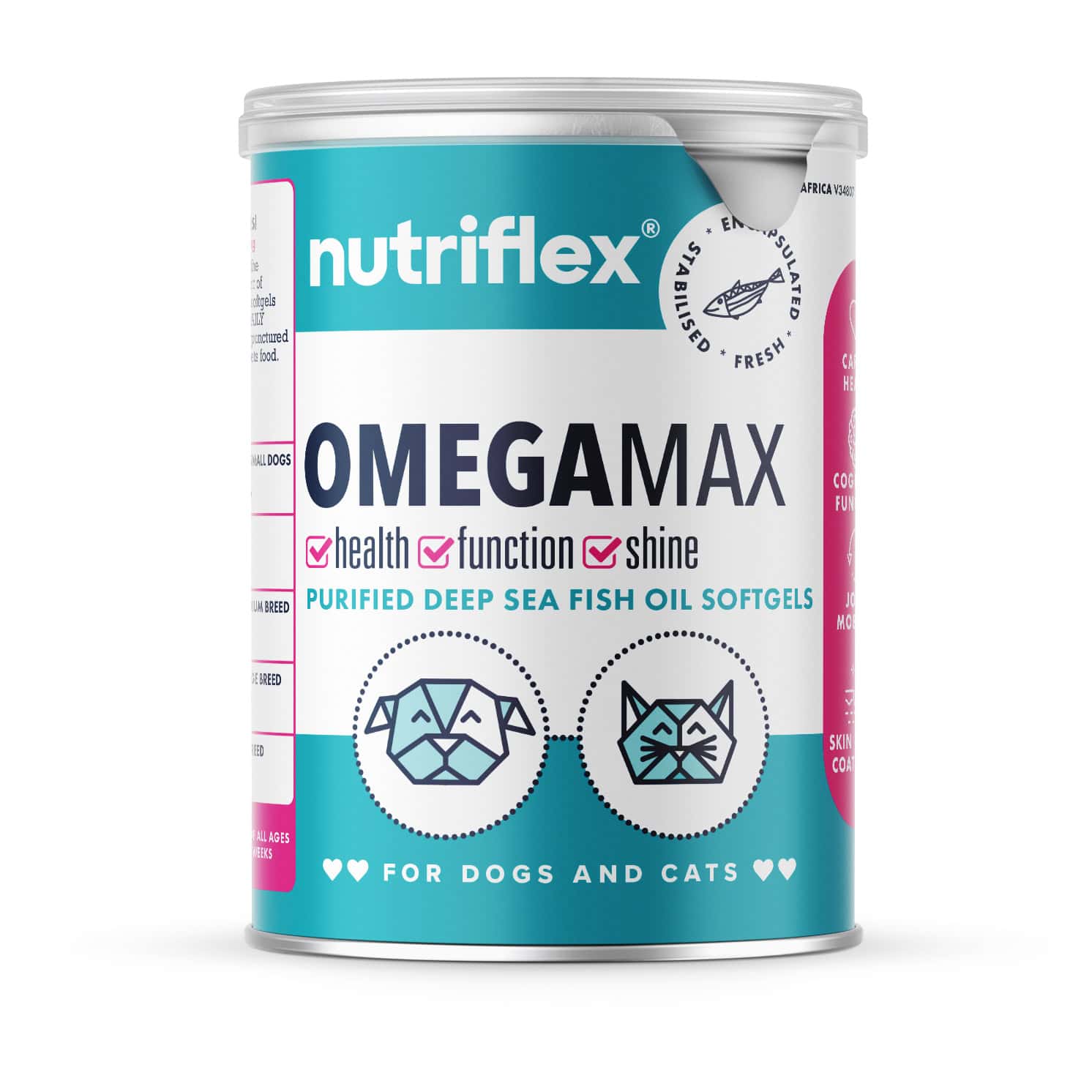
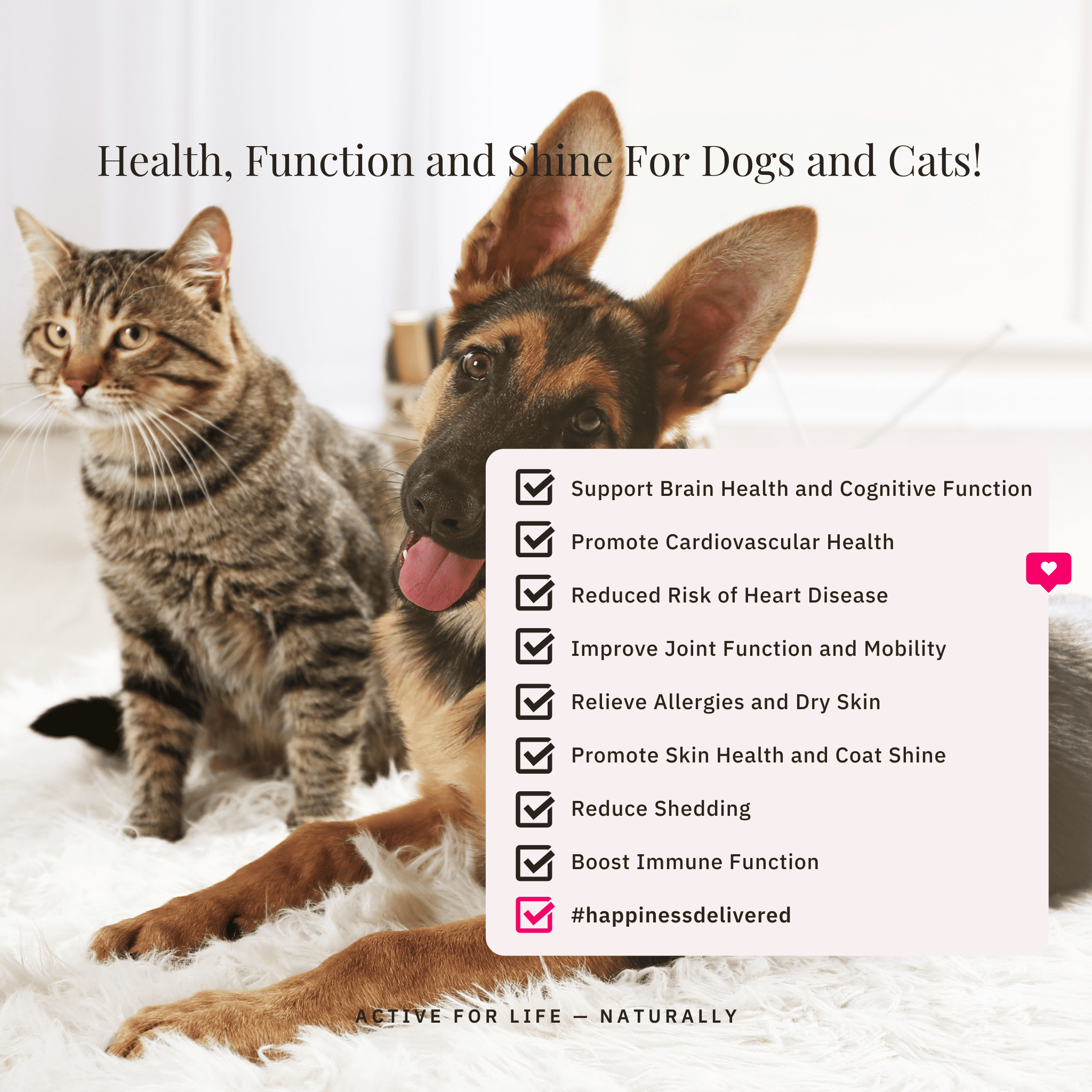
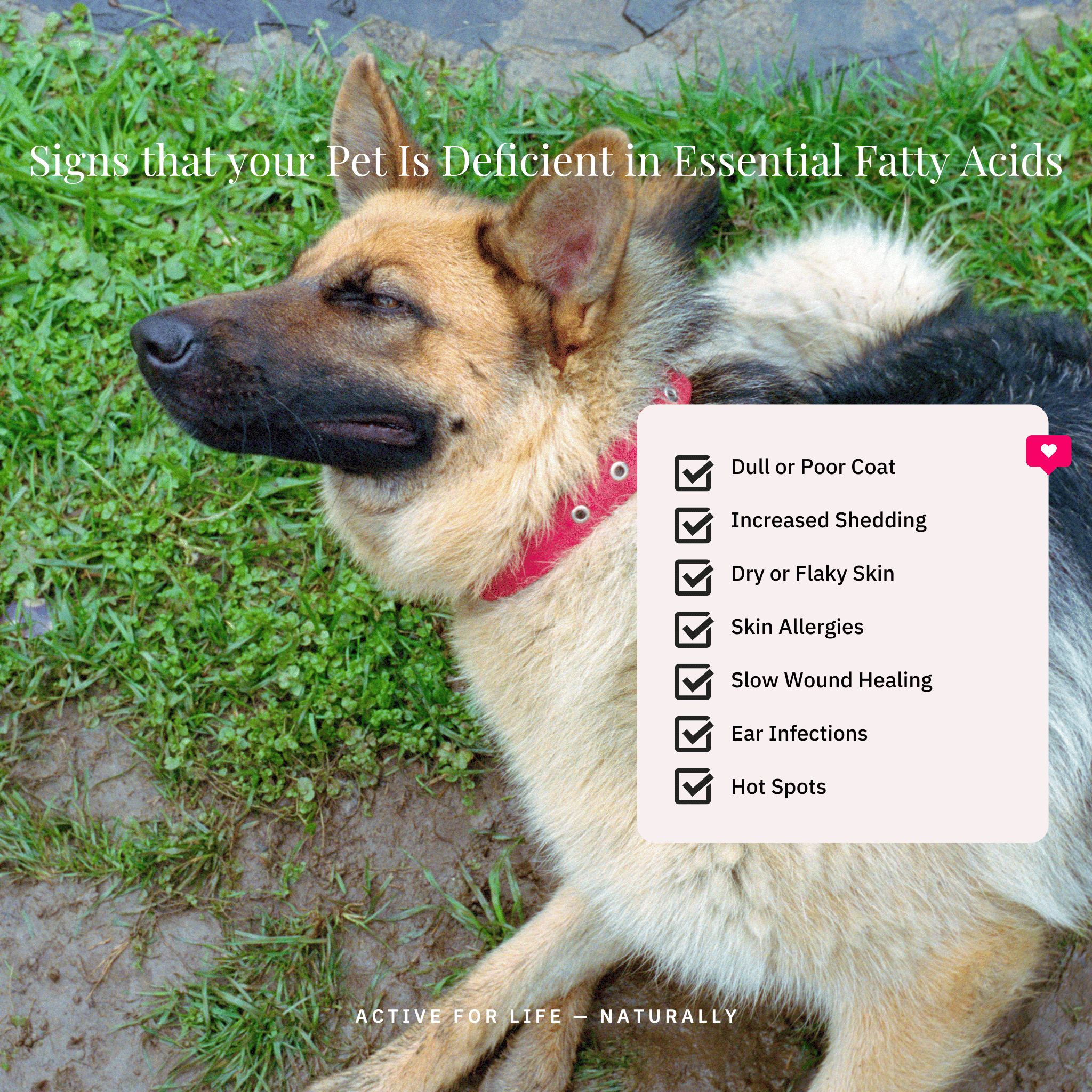
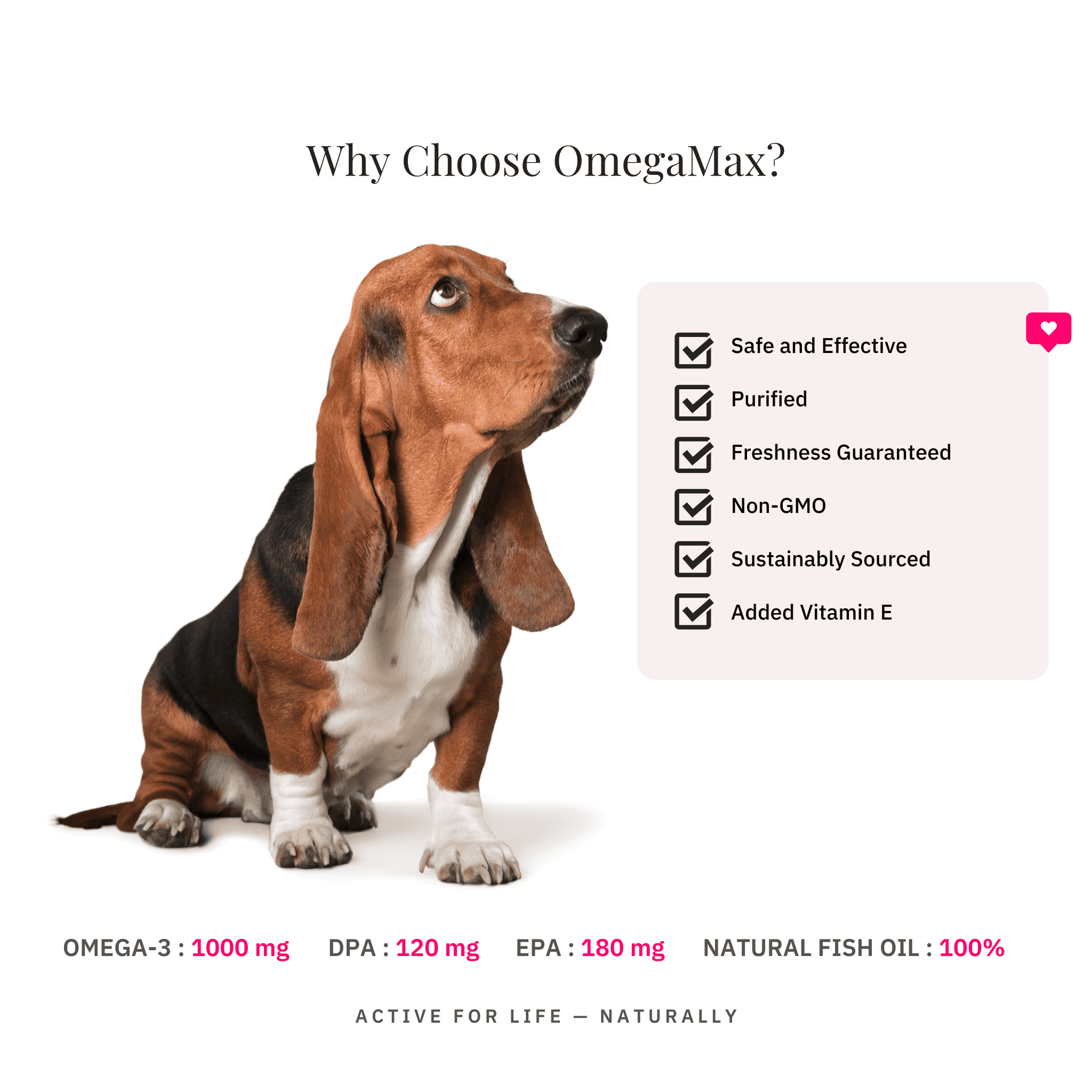
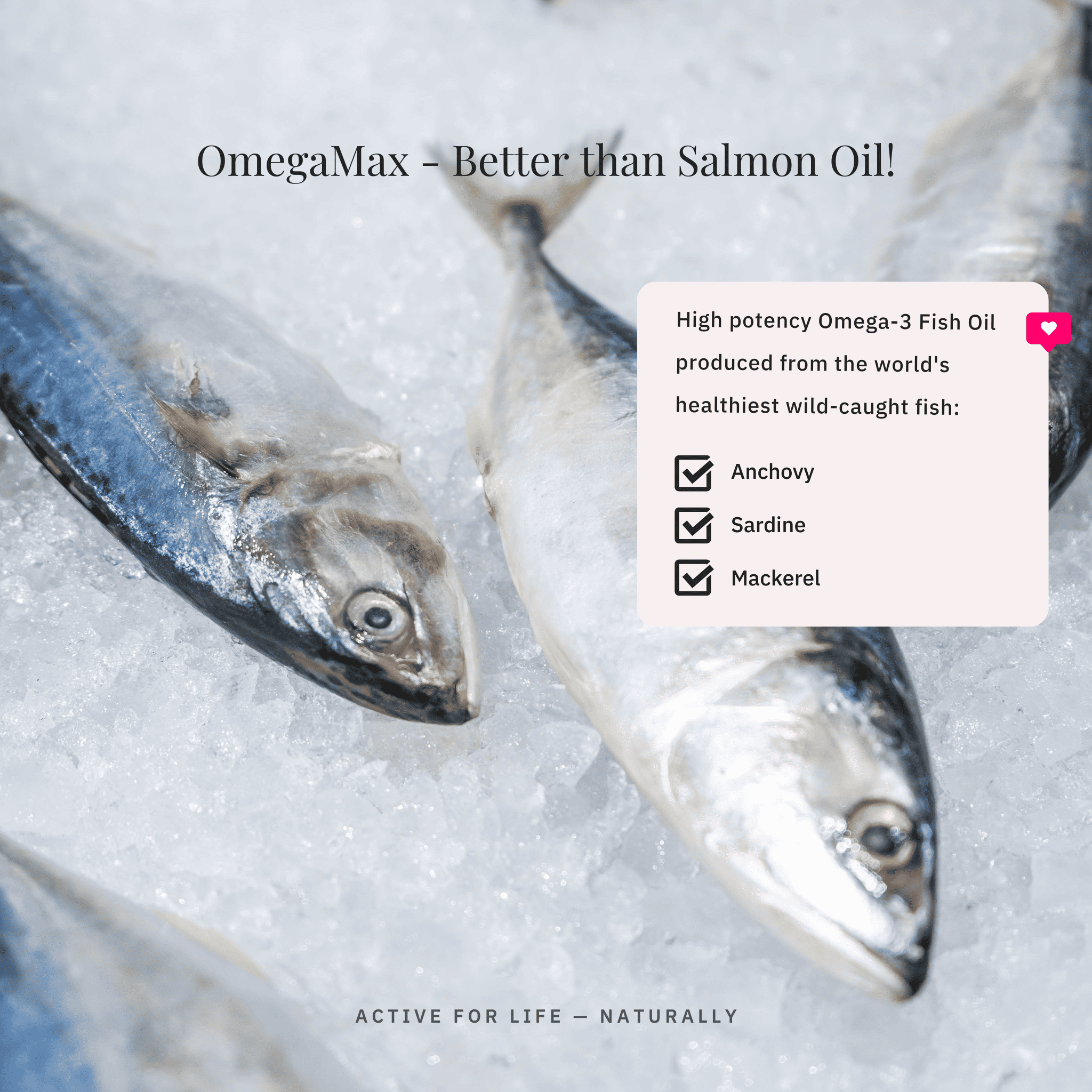
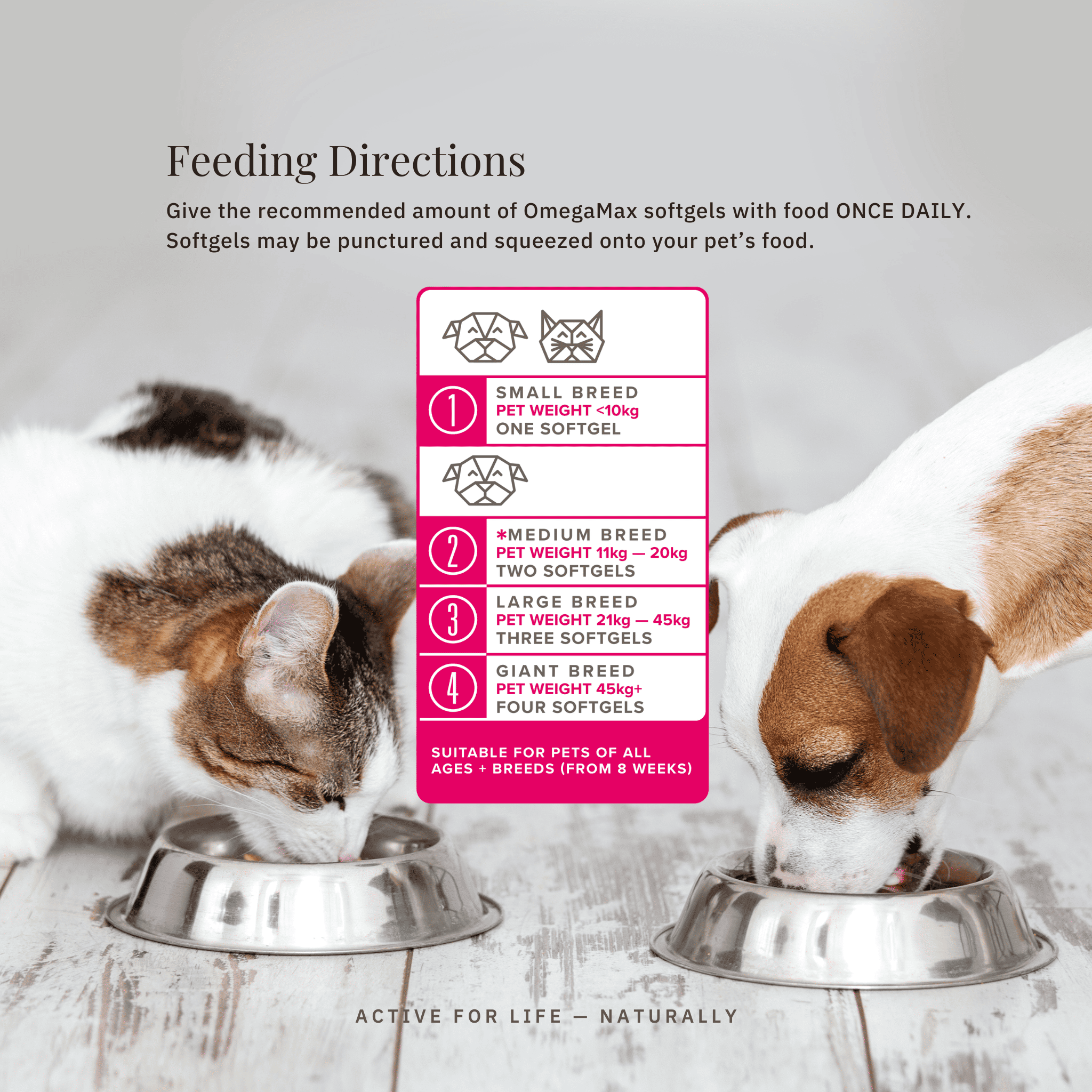
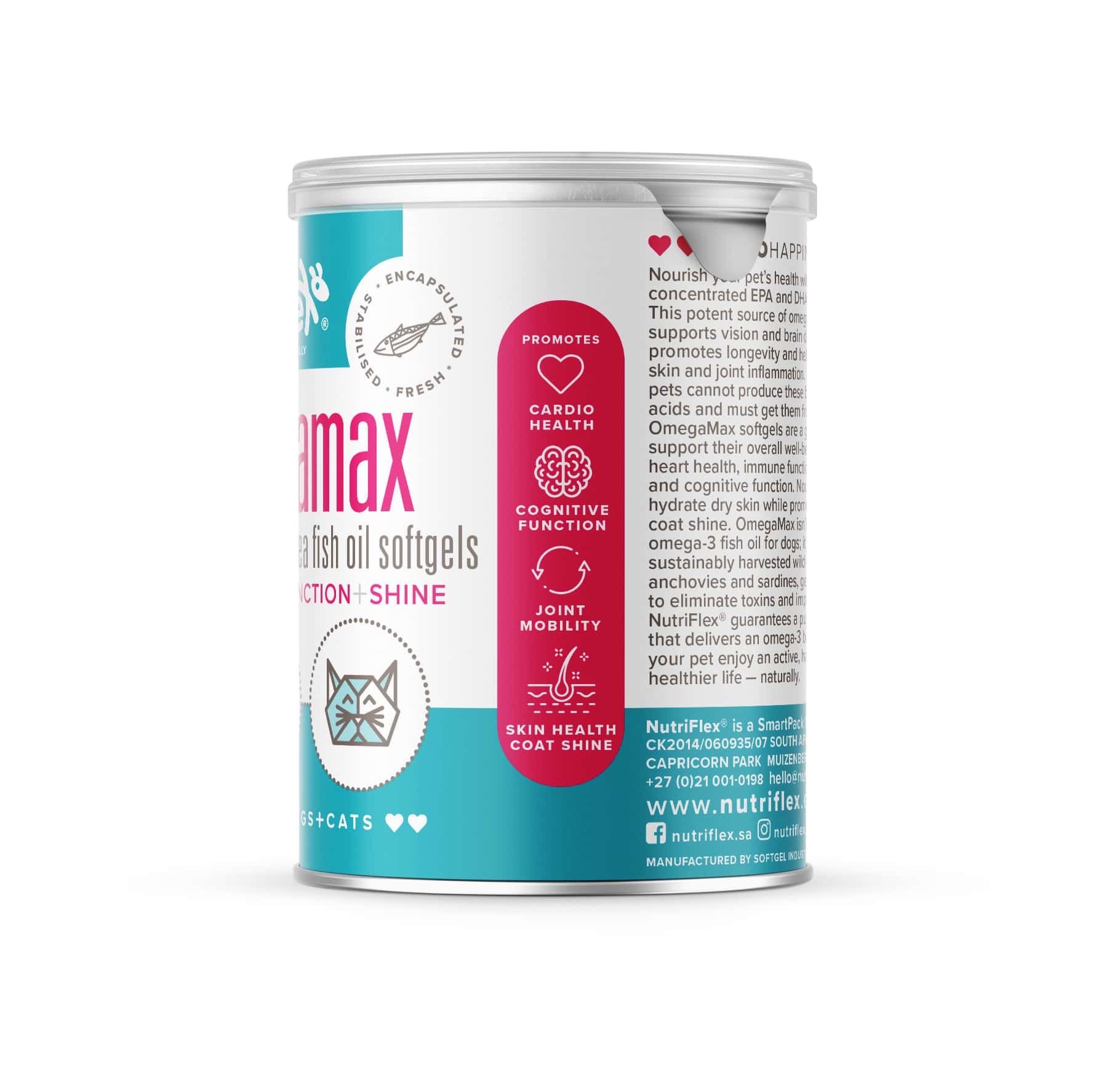
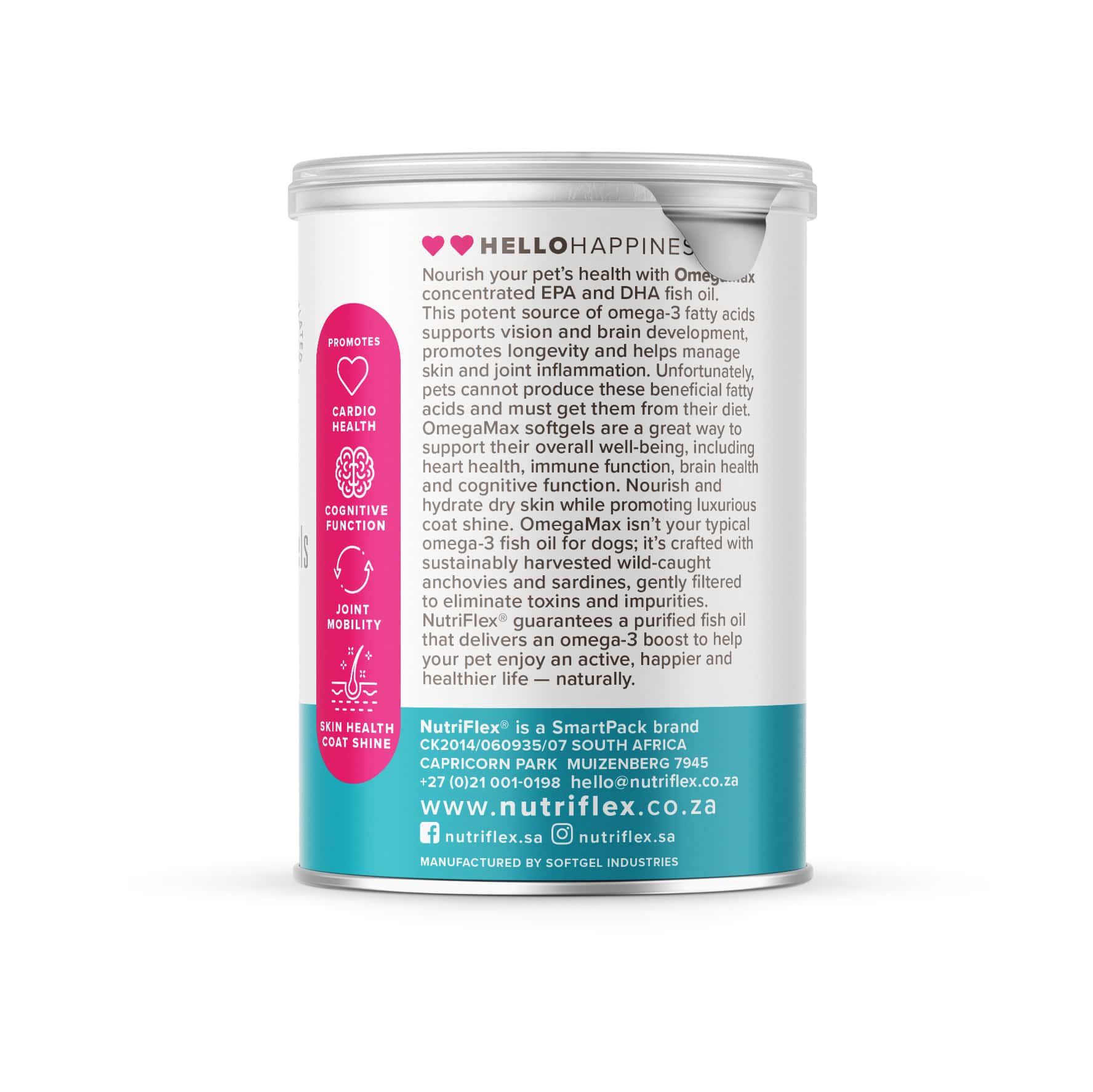
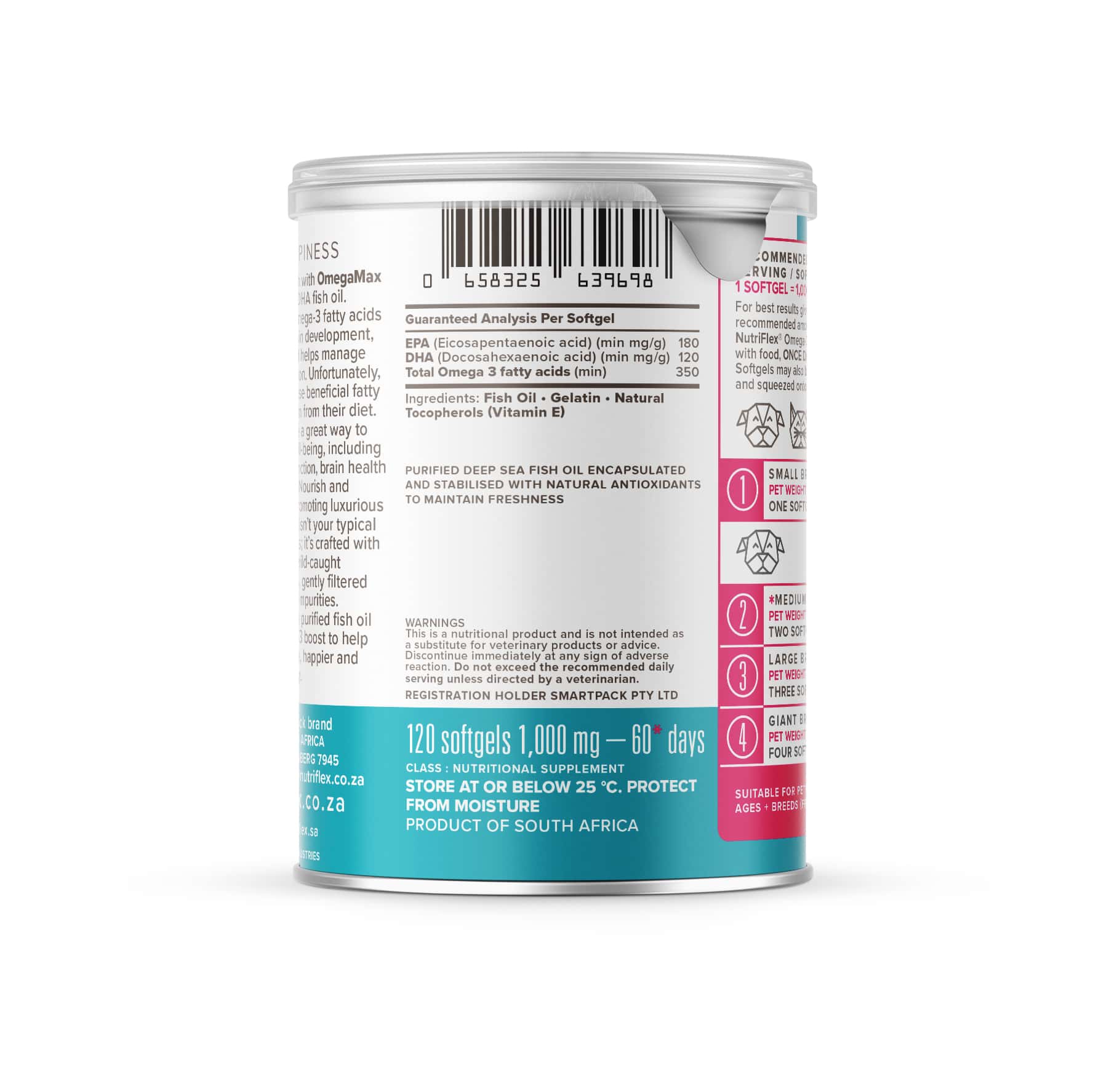
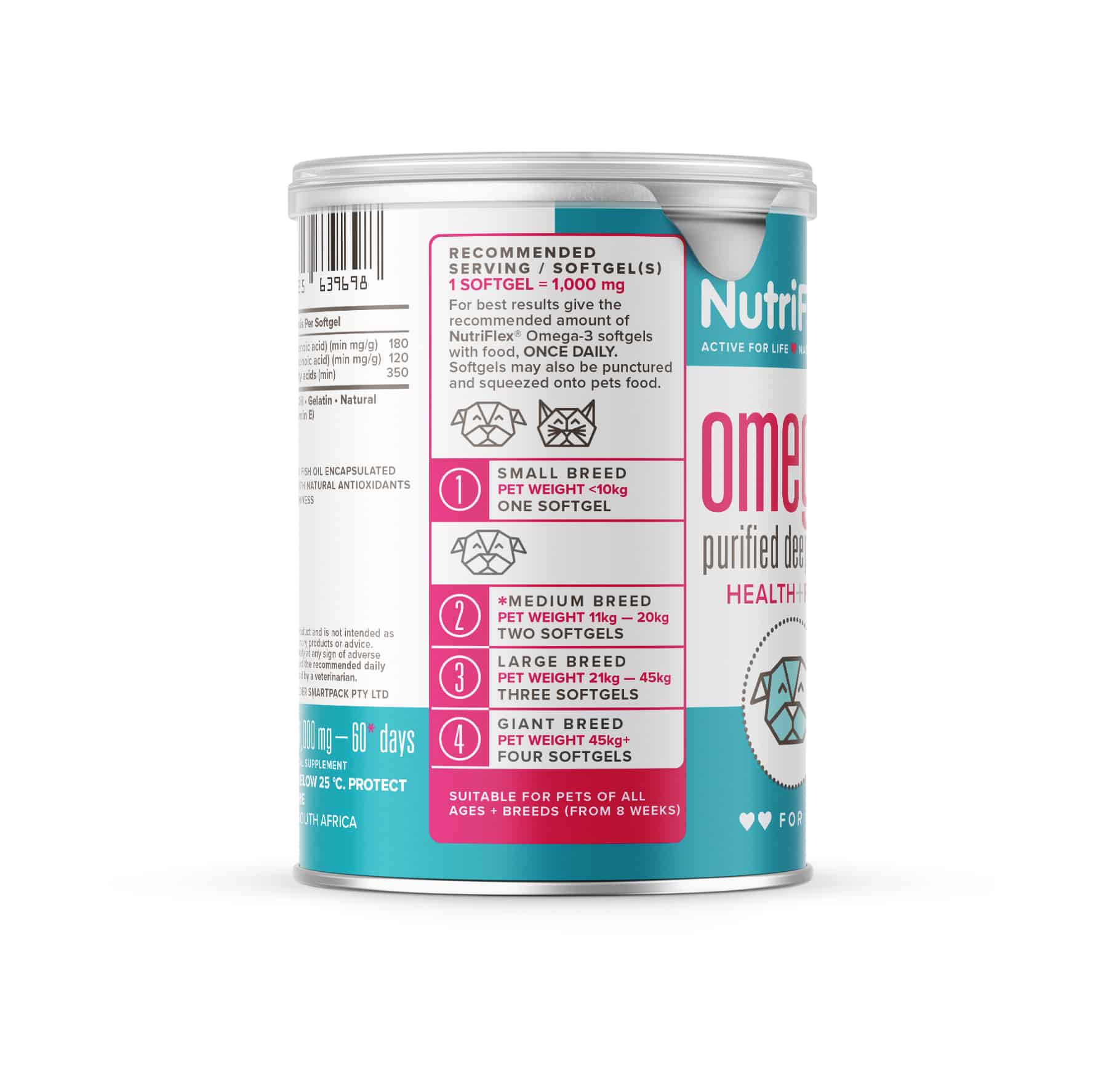

Good product healthy coats on all of the dogs
Brilliant product, love it
appears to really help conditioning the coat
Amazing Product, works really well
at the moment i have only used this for 1 month, so am going on the write-up of the product and the fact that it is 100% ingredients from nature.
Excellent product
SEEMS TO BE HELPING WITH HIS ITCHY SKIN
My fur babies are not as sure of this but we will persist
Great product